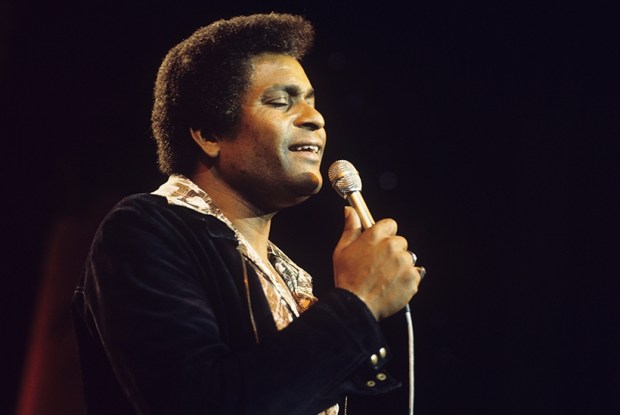Nic Roeg’s art-house thriller from 1973 Don’t Look Now was most famous, or infamous, for its lengthy and explicit sex scene. I think it’s fair to say that the lugubrious (and in 1973 near ubiquitous) Donald Sutherland gave Julie Christie a very thorough seeing-to, involving the first act of cunnilingus in a mainstream movie.
Even after being trimmed a little it still received an X rating, but did well enough at the box office. It was shown again quite recently — in Derby Cathedral, for reasons which quite elude me. In its unedited form. The dean of the cathedral, Stephen Hance, observed that the film would not be showing God ‘anything that He had not seen before’, thus perhaps implying that He had caught the film first time around, on its double-bill release with The Wicker Man — which was also shown in the cathedral.
Hance did not comment on the possibility that God may have seen more than enough of Donald Sutherland in the 1970s, regardless of what the actor might have been munching at the time. He did, however, add that the cathedral was for everyone and it needed to serve a wide range of people — including those who aren’t religious. Well indeed, how very true that is, Rev.
You might be wondering, then, if there is anything at all Dean Hance would shirk from displaying in his cathedral, and luckily I have the answer for you. This week he has banned the University of Derby Christian Union from having a preacher at its carol concert for students. The union had hoped to hear the Reverend Melvin Tinker, from the evangelical Anglican parish of St John Newland, Hull, address the throng.
Not a chance, said the cathedral bosses. Neither would they accept any other preacher from St John Newland because, according to the sub-dean: ‘What is preached in the cathedral will be taken as being preached by the cathedral.’ Hmm. You mean stuff like the Holy Bible?
There is nothing more the likes of Hance (and Justin Welby) loathe than evangelical Christians. An imam reading from the Koran in the cathedral — no problem, that’s inclusivity. So, of course, are LGBTQI services (although probably not when the imam’s around). There’s no objection to having Sutherland doggedly trying to gnaw his way into Julie Christie’s thorax, either. But whatever you do, keep the Christians out — the ones who really believe all that stuff.
Perhaps Dean ‘Beelzebub’ Hance and his team of infernal imps were worried that Tinker, or some other evangelist, might cast doubt on Welby’s recent assertion that God is effectively transgender. That would never do, despite there being no evidence in the Bible for this strange assertion, which seems to be yet another case of a church desperately trying to prove its right-on and woke credentials in an attempt to stem the haemorrhage of worshippers. In 2016 attendance figures for the Church of England slipped to below one million for the first time and stands at about 1.4 per cent of the population. Not all churches are struggling, though. The evangelicals are thriving, which suggests to me that Christians can smell cant from a mile distant and much prefer the traditional values of the church, even when they are politically inexpedient.
Don’t Look Now is a fine film, often considered Roeg’s best work, although I prefer the berserk chutzpah of Insignificance, in which Albert Einstein explains the theory of relativity to Marilyn Monroe while Joe DiMaggio seethes in a nearby hotel bedroom. Not least because there is no Donald Sutherland in it.
Somewhat less explicit, sexually, than any film Roeg has made is David Lean’s magnificent Brief Encounter, which I watched again the other evening, slightly yearning for a Britain which was convulsed with smoke and grime and hurtling steam trains and station buffets in which working-class oiks capered harmlessly and middle-class women were not frowned upon for drinking brandy in the middle of the day.
It is a moving film — even without Rachmaninov emoting away in the background — largely because its premise is that of a letter, a love letter, written by Celia Johnson not to the man by whom she has recently been smitten (Trevor Howard), but to her staid and boring husband, Fred (Cyril Raymond) sitting at home with his perpetual crossword. The most moving moment of all comes at the very end when the supposedly oblivious Fred puts down his crossword and says to his wife: ‘You’ve been a long way away.’
‘Yes…’
‘Thank you for coming back.’
The message is that such infidelity, tempting though it might be, hurts and hurts terribly all those involved. The divorce rate in 1945, when the film was released, had just begun to rise — although it was still only a fraction of what it is today. Then, the church and society would have looked upon infidelity and marital break-up with grave opprobrium: both of the characters of Howard and Johnson would have suffered social stigma.
But we don’t do stigma any more. It is not considered inclusive. The church, in particular, doesn’t do stigma and it much prefers fashionable political grandstanding to enjoining its congregants to abide by a moral code for the good of their children and society as a whole. Perhaps that is why nobody takes the slightest notice of it.
They could remake Brief Encounter, keeping the same title. In the 2018 production, Eddie Redmayne sees Felicity Jones at the railway buffet and after a perfunctory conversation, they exchange phone numbers. Later that day he is kind enough to send her a photograph of his genitals. The affair would be consummated in the gents toilet on Carn-forth station, as their respective trains are cancelled due to a points failure at Carlisle and they await the arrival of the bus replacement services.
Got something to add? Join the discussion and comment below.
Get 10 issues for just $10
Subscribe to The Spectator Australia today for the next 10 magazine issues, plus full online access, for just $10.
You might disagree with half of it, but you’ll enjoy reading all of it. Try your first month for free, then just $2 a week for the remainder of your first year.














Comments
Don't miss out
Join the conversation with other Spectator Australia readers. Subscribe to leave a comment.
SUBSCRIBEAlready a subscriber? Log in